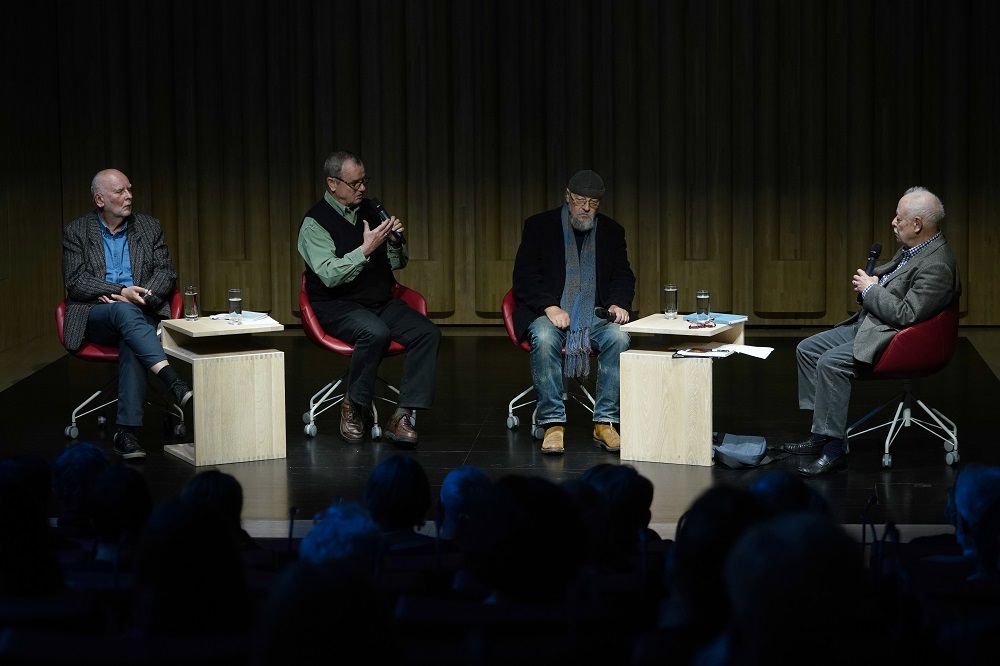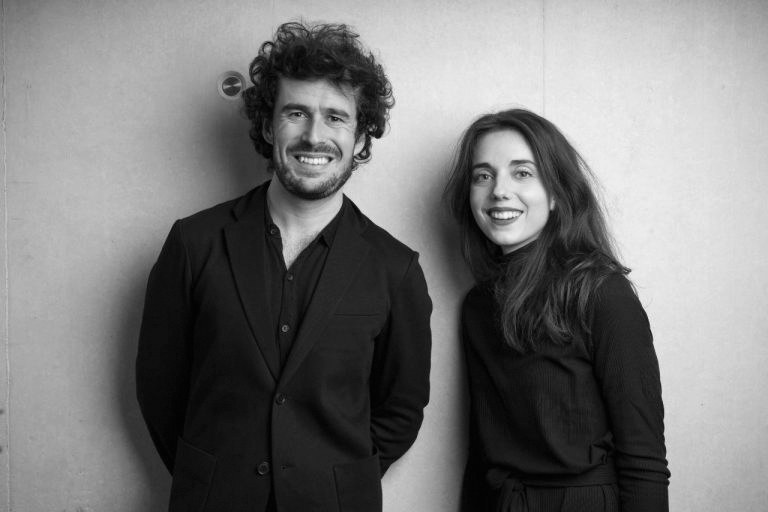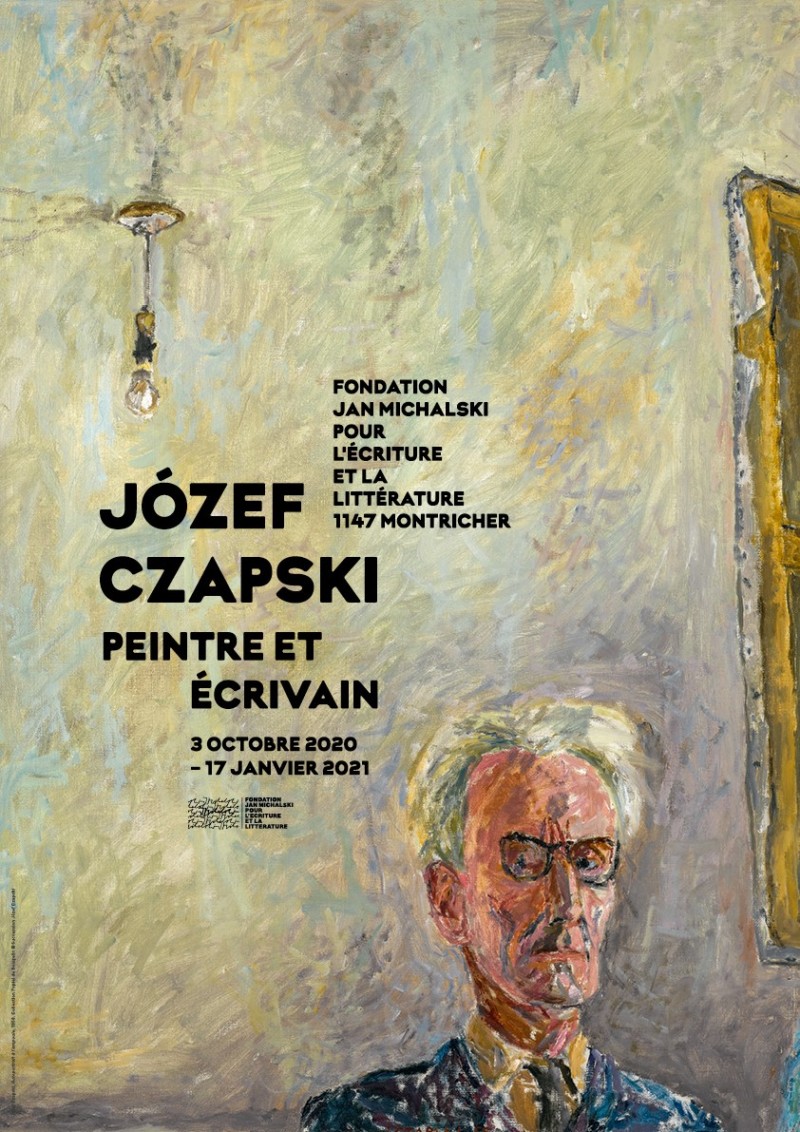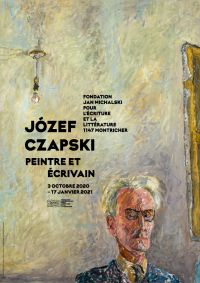
Exposition Józef Czapski
Peintre et écrivain
Józef Czapski, Autoportrait à l’ampoule, 1958.
Collection Popiel de Boisgelin © Succession Józef Czapski
Graphisme : Karen Ichters
Introduction
The life of the painter, writer, critic, and enlightened thinker Józef Czapski (Prague, 1896 – Maisons-Laffitte, 1993) practically coincides with the whole of the 20th century. Moreover, he knew its tragedies and upheavals directly and intimately. Born in Poland, Czapski grew up in the waning days of the Russian Empire. The World Wars forced him as a soldier and officer to confront the horrors and reversals of the conflicts, from imprisonment in 1939 in the Soviet POW camp of Starobielsk to combat against the Nazis in Anders’ Army, the Polish Armed Forces in the East, starting in 1941. Just after the war, Czapski settled near Paris in Maisons-Laffitte, never to see his homeland again. He became an active contributor to Kultura, the famous review of the Polish dissidence published in France, and was unflagging throughout his life in denouncing totalitarian systems and the lies they litter history with, like the massacre of Katyń, of which he was one of the rare survivors.
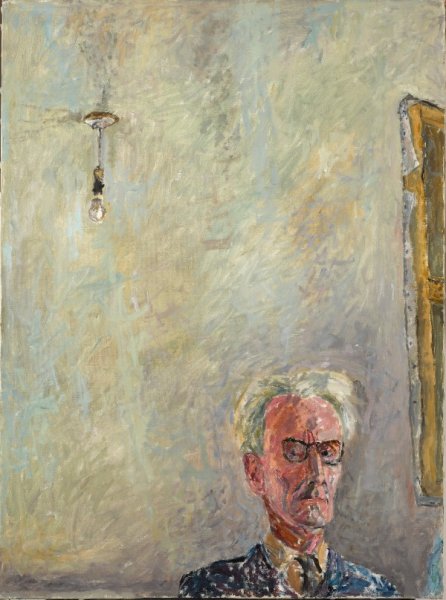
Autoportrait à l’ampoule, 1958 © Succession Józef Czapski
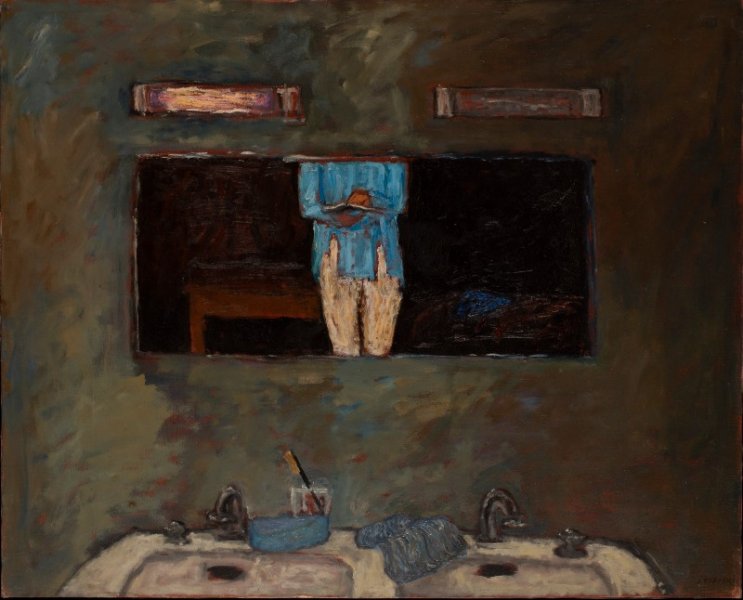
Néon et lavabo (autoportrait), 1959 © Succession Józef Czapski
While his early artistic output was destroyed during the war, Czapski set to work once again in his one room studio and would actively write and paint for another five decades. Proof of his determination and devotion to various forms of expression can be seen in some three hundred volumes of his diary, which he kept between 1941 and 1992, pages and pages that mix notes with visual research, drawings, and watercolors. These notebooks contain the seeds of all his literary texts (Memories of Starobielsk and The Inhuman Land), of his essays on art (L’Œil and Tumulte et spectres), and of all his paintings. It was painting that gave his life its full meaning and Czapski wrote, “I always breathe with my breath, I always see, I always breathe with my eyes.” From this breath springs a pictorial language based on the dab of color and focused on nature, distilled and purified of all that is inessential.
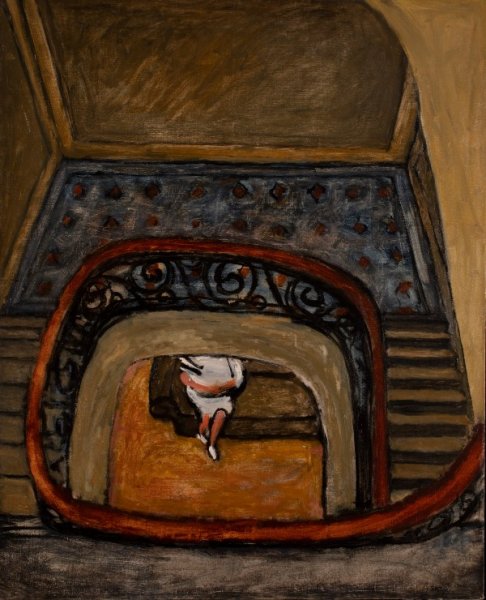
Escaliers, 1964 © Succession Józef Czapski
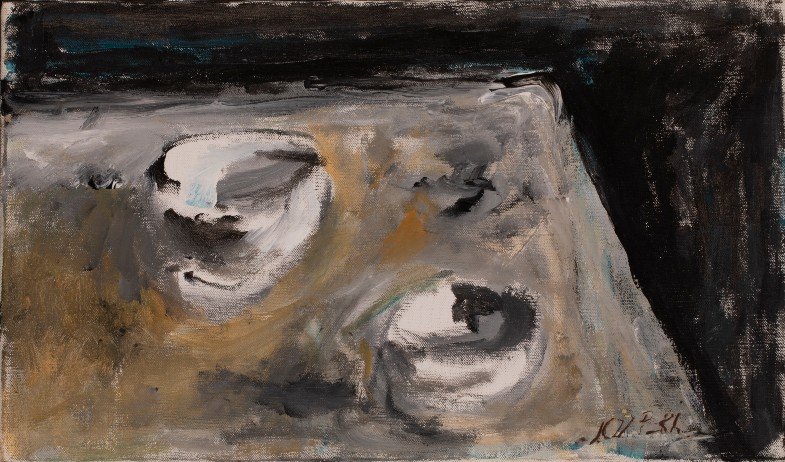
Deux bols, 1987 © Succession Józef Czapski
Through a selection of diaries, books, and drawings, as well as a group of significant paintings that run from self-portraits and still lifes to landscapes and scenes of “the everyday theater” and museums, the Jan Michalski Foundation’s exhibition brings to the fore Józef Czapski’s creative process in his writing and painting. An exceptional destiny in a deeply humanist soul.
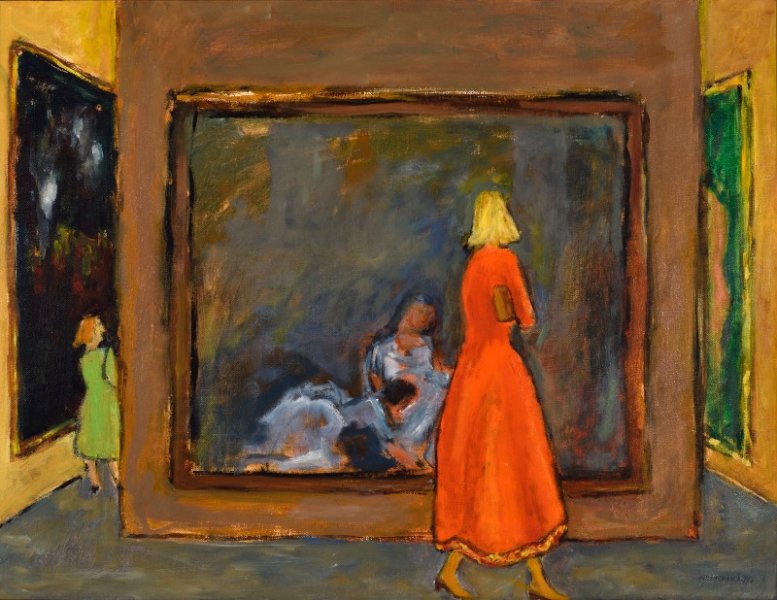
Exposition, 1977 © Succession Józef Czapski
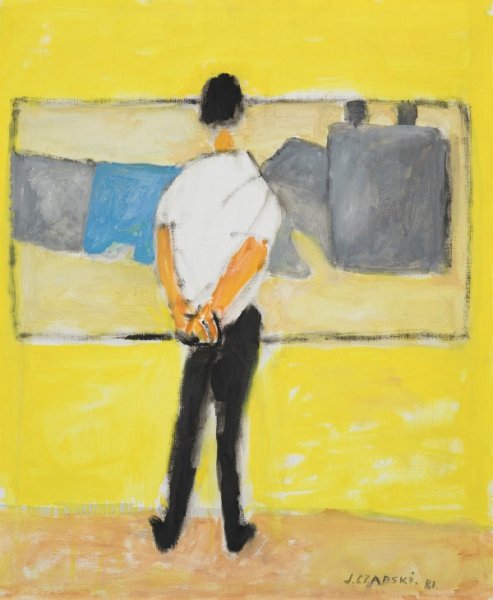
Jeune homme devant un tableau de Nicolas de Staël, 1981 © Succession Józef Czapski
Delving further into this survey of Czapski’s painting, Richard Aeschlimann’s Maison des arts Plexus in Chexbres is featuring some fifty of his pieces in parallel with the foundation’s show. Aeschlimann was Czapski’s friend and the former’s gallery began representing the Polish artist in 1976. The Maison des arts Plexus show reminds us that Switzerland was also a refuge for Czapski, where he developed and maintained connections with a range of artists and writers, and with his publishers at L’Âge d’Homme and Noir sur Blanc.
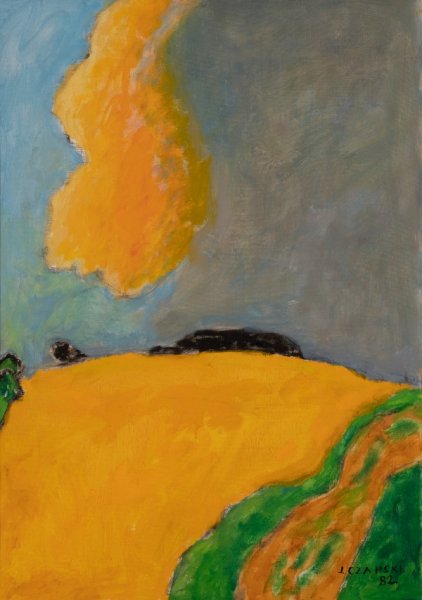
Nuage jaune, 1982 © Succession Józef Czapski
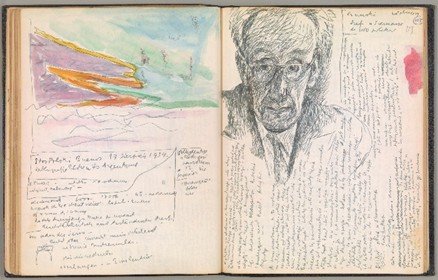
Journal, 1955 © Succession Józef Czapski
Guest curator
Mikołaj Nowak-Rogoziński
Project manager for the Jan Michalski Foundation
Natalia Granero with Mélanie Kensicher and Alexandra Pitonzo
Sceenography
Raphaèle Gygi
Texts
Mikołaj Nowak-Rogoziński et Natalia Granero, Fondation Jan Michalski
Józef Czapski’s works
Succession Józef Czapski
Virtual visit
Enjoy the virtual tour !
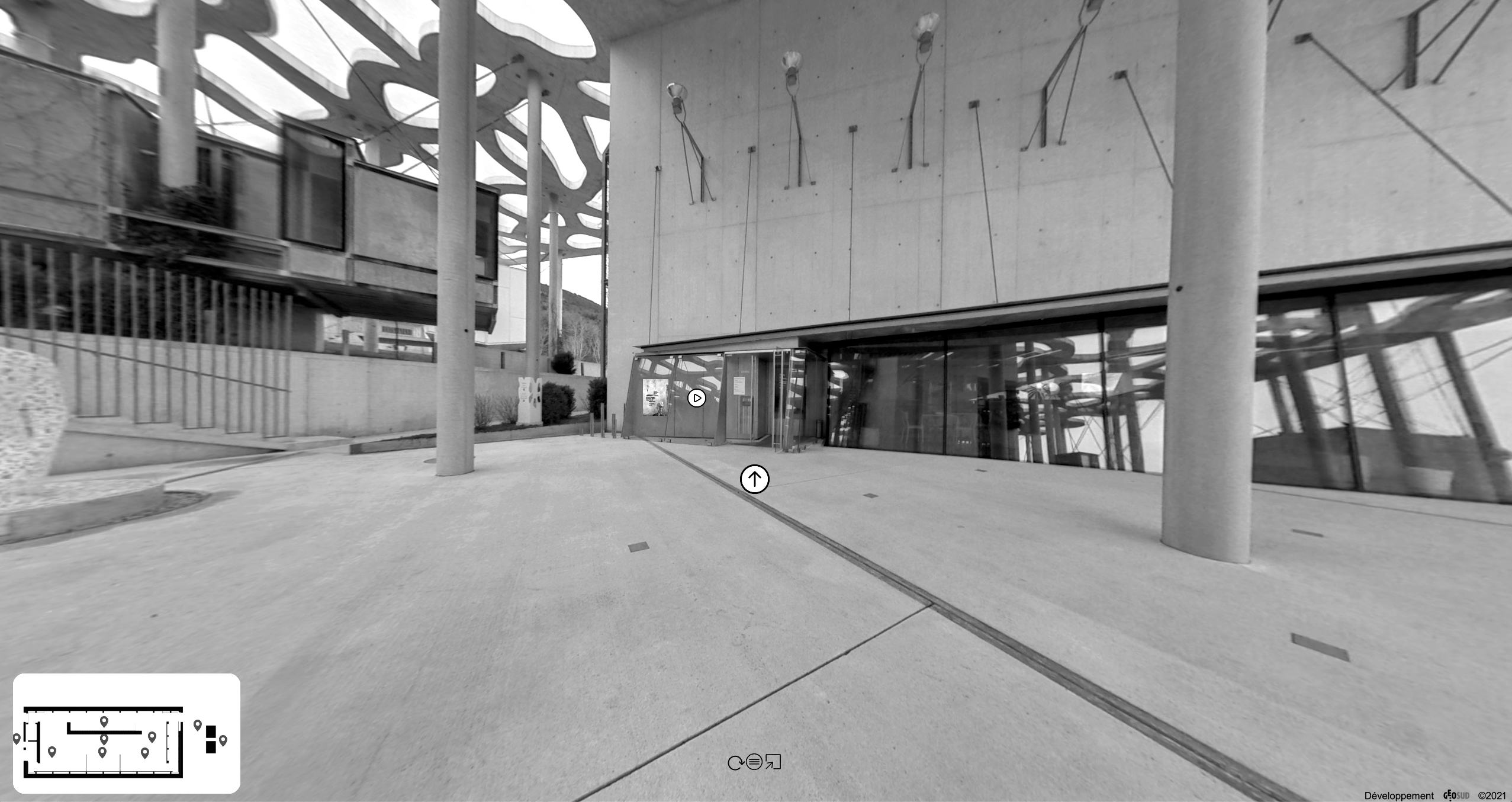
Conception
Jan Michalski Foundation
Editing and production
Benoît Jordil, Géosud SA
Pictures of Józef Czapski’s works in the exhibition
Leo Fabrizio
Pictures of the “livres bavards” in the library
Wiktoria Bosc
Partnership
Joseph Czapski, l’existence dans la peinture, from 3 October 2020 to 17 January 2021
at Maison des arts Plexus, Place du Nord 1, 1071 Chexbres
Visite sur rendez-vous par téléphone au 021 946 28 30
Visit by appointment | Phone number: 021 946 28 30 and also on the common tours dates in the programme: 24 October, 15 November, 12 December and 17 January
Curators
Richard Aeschlimann and Nicolas Raboud
Photographies des œuvres de la salle d’exposition
Alain Herzog
Virtual tour of the exhibition Joseph Czapski, l’existence dans la peinture
Editing and production: Benoît Jordil, Géosud SA
Pictures of Józef Czapski’s works in the exhibition: © Alain Herzog
Curators: Richard Aeschlimann et Nicolas Raboud
Sceenography: Nicolas Raboud et Richard Aeschlimann
Józef Czapski’s works: © Succession Józef Czapski
Programme
Une série d’événements sont organisés autour de la figure et du rôle de Józef Czapski, afin d’accompagner la découverte de l’exposition.
Visites commentées de l'exposition
En anglais par le commissaire d’exposition Mikołaj Nowak-Rogoziński
Samedi 3 octobre à 16h30
Dimanche 4 octobre à 16h30
En français, visites communes avec la Maison des arts Plexus, Chexbres
Samedi 24 octobre
à 11h à Montricher / à 14h15 à ChexbresDimanche 15 novembre
à 11h à Montricher / à 14h15 à ChexbresSamedi 12 décembre
à 11h à Montricher / à 14h15 à ChexbresDimanche 17 janvier
à 11h à Montricher / à 14h15 à Chexbres
Moments famille « L’œil de l’artiste : atelier du croquis à la toile »
Promenez vos yeux dans l’exposition Józef Czapski à la découverte de l’univers d’un peintre-écrivain qui puisait une partie de son inspiration dans le théâtre du quotidien. Puis à votre tour, sur les traces de l’artiste, réalisez un croquis d’une scène vivante au musée avant de la peindre sur toile. Avec un goûter en guise de conclusion.
Mercredi 28 octobre de 14h à 16h30
Mercredi 4 novembre de 14h à 16h30
Mercredi 9 décembre de 14h à 16h30
Concert et conférence autour de l'exposition
Related
Une ensemble d’éléments documentaires sont présentés à partir du programme culturel de la Fondation et de sa médiathèque, ainsi que des contenus provenant d’institutions partenaires.
